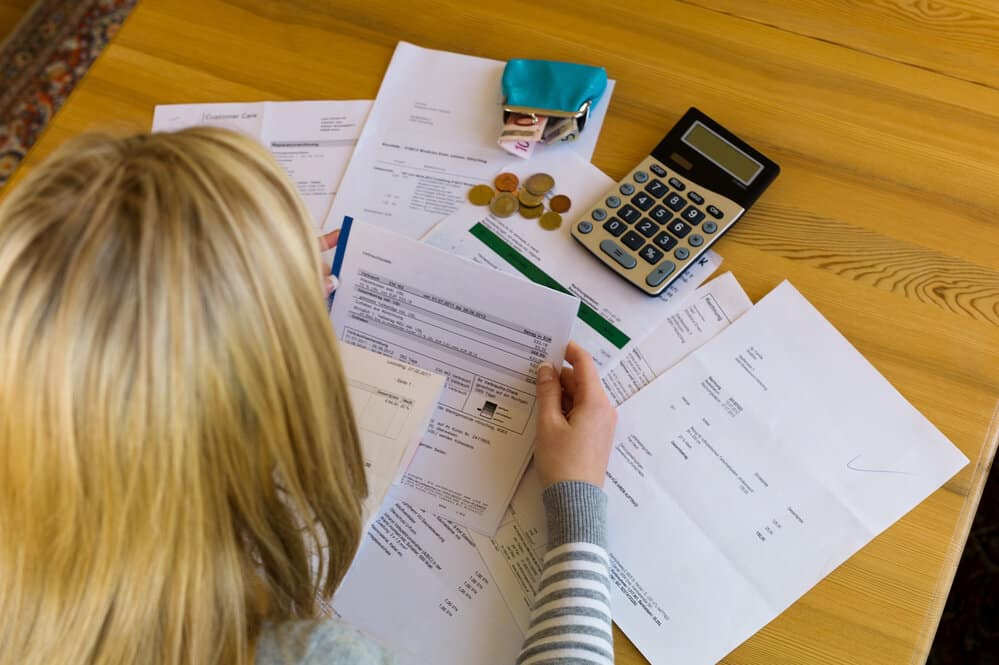Learn about fee waivers, pro bono support, and payment options for Chapter 7 or Chapter 13 — even when money is tight.
Filing Bankruptcy on a Tight Budget
If you’re struggling financially, the cost of bankruptcy can feel like one more impossible burden. But you’re not alone — and more importantly, you’re not without options. Whether you’re considering Chapter 7 or Chapter 13, there are practical, legal ways to move forward even if you can’t afford to pay everything upfront.
This guide breaks down your options — from fee waivers and installment plans to free legal support and nonprofit credit counseling.
1. Apply for a Chapter 7 Filing Fee Installment Plan
The current Chapter 7 filing fee is $338. If you can’t pay it all at once, you can ask the court to split it into up to four payments over 120 days.
You’ll use the Application to Pay Filing Fee in Installments and include details about your:
- Income and expenses
- Family size
- Joint filing status
Example payment plan:
- $88 on filing
- $85 due monthly over the next three months
The court must approve the plan. Missing payments could result in your case being dismissed — so only request this if you know you can follow through.
2. Apply for a Chapter 7 Fee Waiver
If your household income is below 150% of the poverty line and you can’t afford to pay in installments, apply for a full fee waiver using Form 103B.
To qualify, you must:
- Be filing as an individual (not a business)
- Be filing under Chapter 7
- Show that paying the fee would be an undue hardship
You’ll need to report income, expenses, cash, property values, and any attorney fees paid. The court may approve it, deny it, or schedule a short hearing.
3. Use a Nonprofit Credit Counseling Agency
Before filing, you’re legally required to complete a pre-bankruptcy counseling session with an approved provider.
At Money Fit, we offer:
- Affordable counseling for individuals and couples
- Pre-filing and pre-discharge bankruptcy certificates
- Fee waivers available for those who qualify
4. Get Pro Bono Legal Help (Free Attorneys)
If you can’t afford attorney fees, contact your local Legal Services Corporation provider. These nonprofit legal aid groups help low-income individuals access bankruptcy services at no cost.
Eligibility is usually based on:
- Household income (typically under 200% of poverty line)
- Case complexity and local funding availability
Pro bono attorneys can also help you request a filing fee waiver or payment plan.
5. File Pro Se (Without an Attorney)
If you have a simple case — no home, no business, no priority debts — you may be able to file pro se (on your own).
However, success rates are lower: about 65% of pro se filers receive a discharge, compared to 95% with attorneys. Filing without help can work, but it carries more risk.
Free tools like Upsolve.org can guide you through the process if you’re eligible.
6. Chapter 13: Pay Attorney Fees Over Time
Unlike Chapter 7, Chapter 13 allows most or all attorney fees to be rolled into your repayment plan.
This makes it easier to afford legal representation up front. Chapter 13 may be a better option if you:
- Have regular income
- Need to catch up on mortgage, car, or child support arrears
- Want to protect your home or other major assets
Filing fee: $313 (as of 2025) Attorney fees: Often $3,000–$5,000, paid through the repayment plan
7. Use Technology and Updated Resources
- Most courts now allow online filing
- Counseling sessions can be done virtually
- Use uscourts.gov for updated forms and court guidelines
- Explore nonprofit tools like Upsolve if filing pro se
Ready to Start?
Money Fit is here to help. We offer:
- Low-cost bankruptcy counseling
- Certificate delivery within 24 hours
- Waiver eligibility screening
Get Started with Bankruptcy Counseling →
Related Articles
Explore more resources to help you make informed decisions:
Disclaimer: This article is intended for educational purposes only and does not constitute legal or financial advice. Although Money Fit is approved by the Executive Office for U.S. Trustees (EOUST) to provide pre- and post-bankruptcy counseling certificates, we are not attorneys and do not offer legal representation or legal opinions. For legal guidance, please consult a licensed bankruptcy attorney. EOUST approval does not equal endorsement.
Frequently Asked Questions About Filing Bankruptcy When Money is Tight
Can I file bankruptcy if I have no money?
Yes. You can apply for a fee waiver, use a free attorney, or file pro se using resources like Upsolve.
What if I miss a filing fee installment?
Your case could be dismissed. Make sure you can meet the full schedule before applying for a payment plan.
Is Chapter 7 or Chapter 13 cheaper?
Chapter 7 usually costs less up front, but Chapter 13 lets you spread attorney fees over time — which may make it more affordable overall.
How do I find free help for bankruptcy?
Visit LSC.gov or contact a local legal aid nonprofit. They can connect you with pro bono attorneys.
Does Money Fit offer free counseling?
We offer affordable sessions and may waive fees for clients who qualify. All services meet U.S. Trustee requirements.








